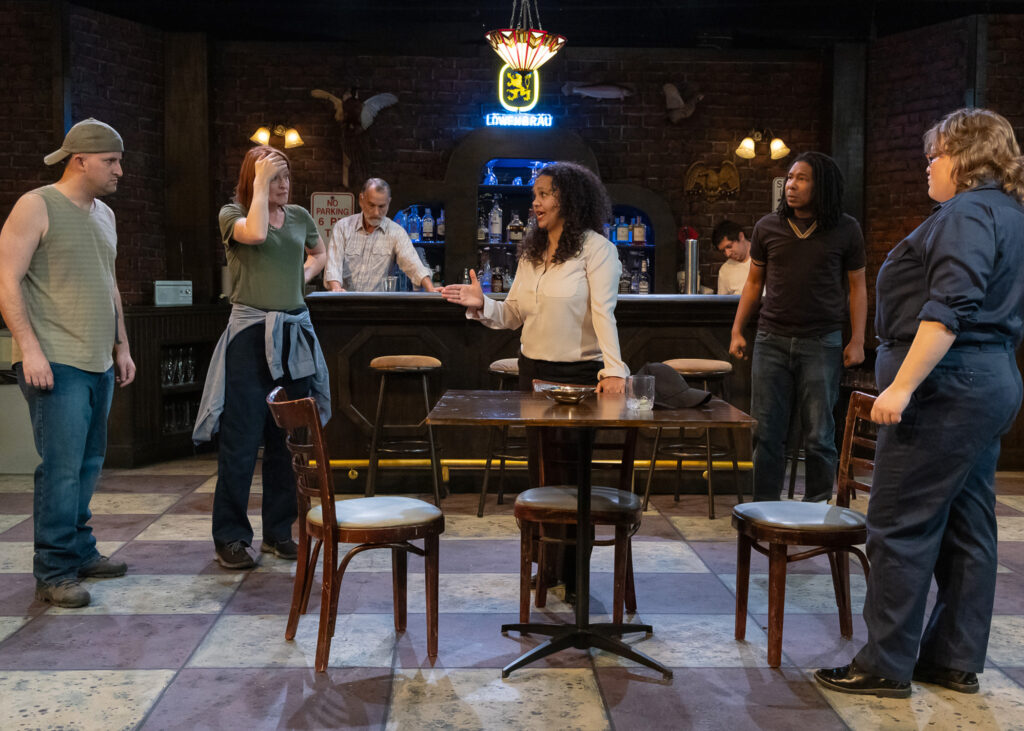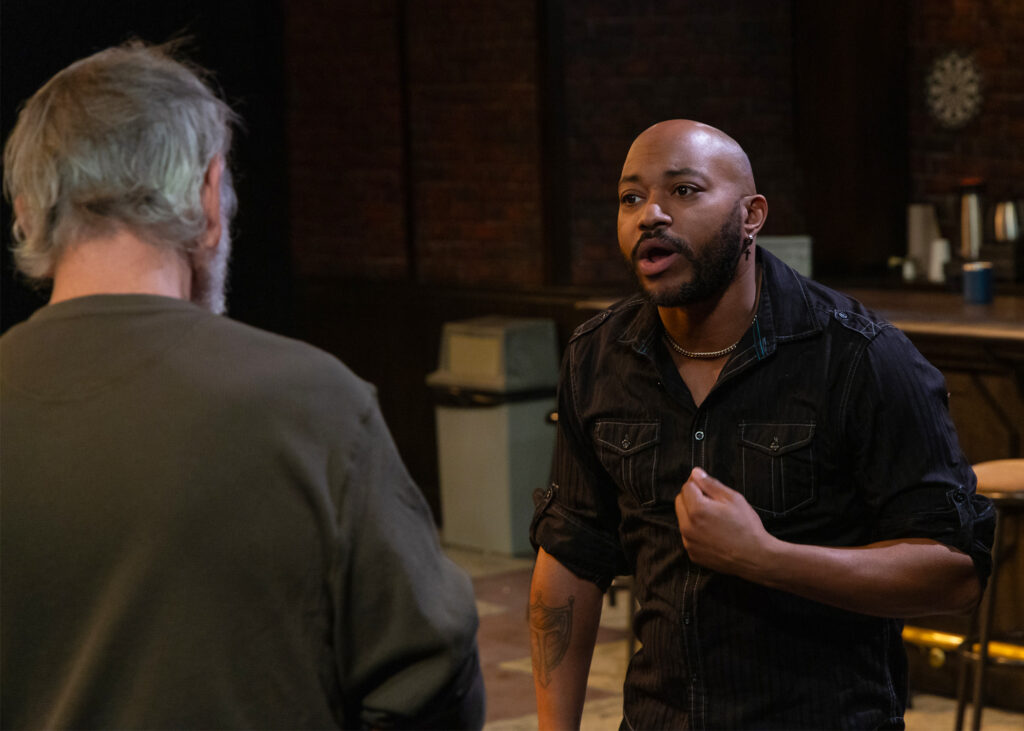
If you’re lucky, co-workers can turn into true friends. These are the people you work alongside day in and day out, celebrating the highs and commiserating over the lows that life throws your way.
These are the people you collaborate with, take lunch breaks with and complain about seemingly endless meetings with. Sometimes, it feels like you see co-workers more than you see your own family.
That support can make it easier to get to work on those days when you’d rather stay at home, but when pride, race relations and the threat of losing a job get in the way, those connections can weaken, until former close friends and co-workers look at each other with an “It’s me versus them” mentality.
Playwright Lynn Nottage explores how quickly relationships between co-workers can change when those co-workers feel like their backs are against the wall in her Pulitzer Prize-winning play “Sweat,” which runs Friday through Feb. 2 at the Spokane Civic Theatre.
“Sweat” centers on a group of blue collar workers and their families in Reading, Pennsylvania, bouncing between two timelines, one in 2000 and one in 2008.
The play opens in 2008 with Jason (Timothy Linton), a man with white supremacist tattoos, and Chris (John Crocker), a Black man, meeting individually with their parole officer Evan (Brian Little).
The play then flashes back to 2000, with three friends – Tracey (Caryn Hoaglund), Jason’s mom; Cynthia (Rachae Thomas), Chris’s mom; and Jessie (Morgan Lee) – celebrating Tracey’s birthday at their favorite bar.
While Jessie is passed out drunk, Cynthia tells Tracey that she recently kicked out her estranged husband Brucie (Shaune Gardner) because he began abusing drugs after being locked out of his job at a local textile mill.
The pair also talk about an acquaintance named Freddy, who burned down his home due to the stress of a failed marriage, debt and rumors of layoffs at Olstead’s, the steel tubing factory where Tracey, Cynthia and Jessie all work.
Tracey and Cynthia laugh off the rumors, but bartender Stan (Thomas Heppler), a former Olstead’s employee, tells them that because of the North American Free Trade Agreement, steel workers could be replaced by employees in Mexico.
When Jessie wakes up and becomes angry that Stan won’t serve her another drink, Oscar (Daniel Barton), the Columbian American busboy at the bar, escorts her to the bathroom. Oscar is often either ignored by bar patrons or the recipient of their xenophobia.
While Jessie is away, Tracey and Cynthia express concern about her drinking before discussing a recently open warehouse supervisor position. To Tracey’s surprise, Cynthia shares that she is thinking of applying. Tracey herself is also interested in the job.

As “Sweat” continues and timelines switch back and forth, relationships change between the three women when one gets the supervisor position over the other, and audiences learn how Jason and Chris came to be required to meet with a parole officer.
Racist sentiments and discussions about immigration and the experience of being in the working class further drive a wedge between relationships.
Director Susan Hardie was drawn to the grittiness of “Sweat” and felt like it was a show she could really become emotionally involved with. The show is like an onion, she said, and can be continuously peeled back, revealing new themes with each layer.
“There are many themes in ‘Sweat,’ and they all stem from the notion of work,” she said. “How we find dignity and purpose in work and when it’s taken away from you, how that leads to a certain kind of disillusionment and despair that can then bring up so many other things. Economic strain can take a toll on race relations, particularly in a town like Reading, Pennsylvania, where this takes place and the time it takes place in.”

“Sweat” was commissioned by the Oregon Shakespeare Festival for the 2015 season as part of its American Revolutions program, which tasked playwrights to write plays about important moments in American history.
Nottage wrote about what she calls the “de-industrialization” of America, or the period around 2000 when the North American Free Trade Agreement was implemented. In simple terms, this agreement moved jobs from once-industrial towns like Reading to Mexico.
She and her team traveled to Reading and interviewed everyone from politicians to people on the street about their experience in town.
“The town was really thriving for a while there, and then NAFTA happened, and other things happened and of course, things became very depressed,” Hardie said.
Those interviews helped inform the characters in “Sweat,” though Hardie notes the experiences of the characters, however fictional and from the past, are likely to seem familiar to at least a few members of the audience.
“Nottage determined that the De-Industrial Revolution was a moment that would impact the next 100 years,” Hardie said. “It could be argued that we are where we are at because of things that happened in the early 2000s politically. This disillusionment, this devastation about the loss of work and the impact it has on modern America that gave folks identity and purpose and then took it away. And how this was the generation that no longer could take advantage of the beautiful things their generations before them had in life.
“This is part of what has led, I believe, to the decisions people are making politically today.”
“Sweat” is a cautionary tale, Hardie said. While we’d like to think friends would try to lift each other up when faced with destructive forces, be they loss of work, racism or substance abuse, it’s also easy to imagine people pushing relationships aside and fending for themselves when the going gets tough.
Even still, there’s a lot of heart to the play, a nod of sorts to the perseverance of people living a hardscrabble life like the characters in “Sweat.”
“(Nottage) brings out the humanity in these people,” Hardie said. “I always get a knot in my throat by the end of this play, just watching these people and growing to love them and then seeing the decline. But yes, there is humor in the play as well. Nottage balances that nicely.
“But my job as a director is to deliver the emotional wallop. That’s always what I feel is my job, and as a person who loves to go to the theater and cry, that works for me.”


